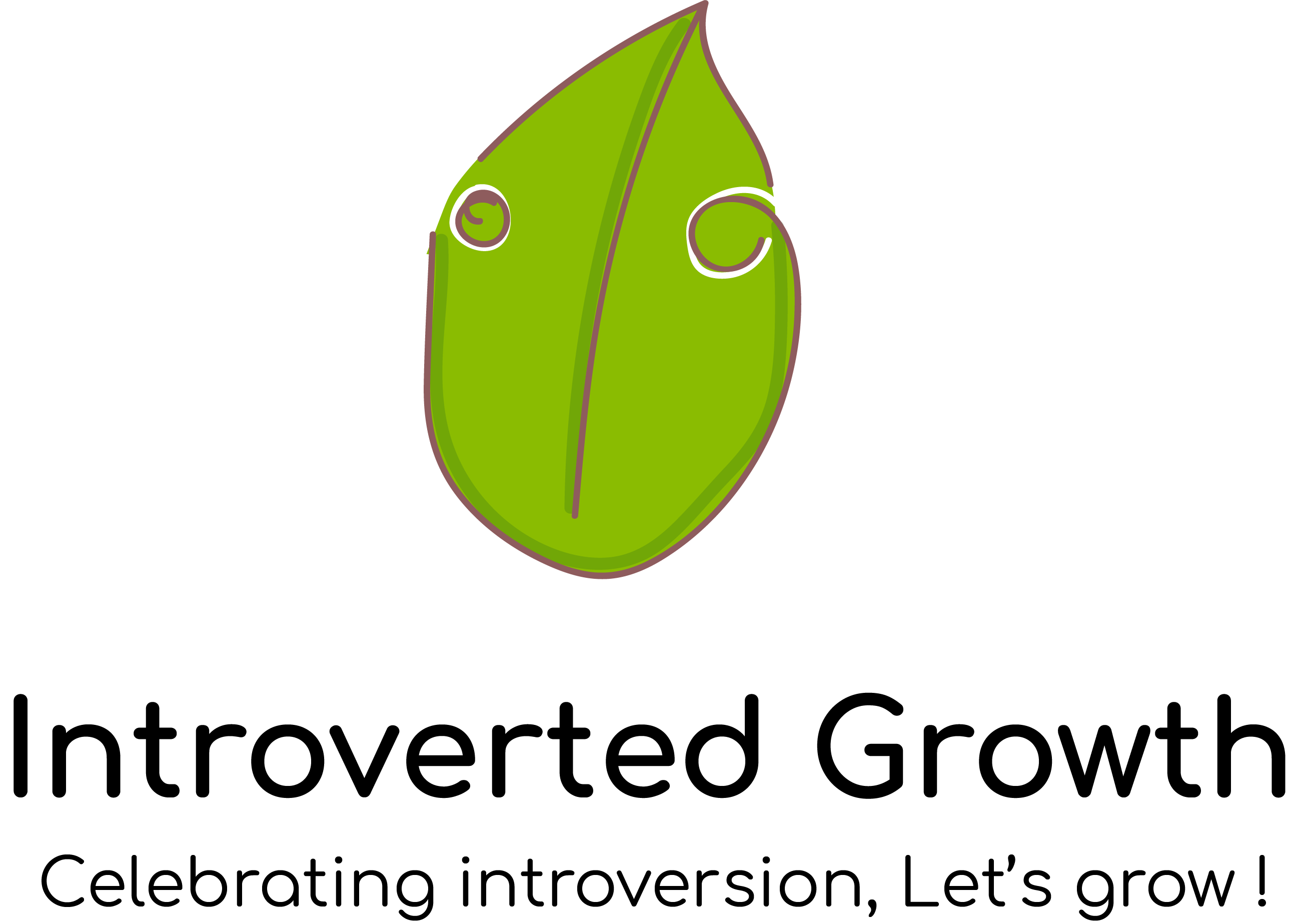In this article, we’ll go over one of the 8 cognitive functions of the Myers Briggs types: introverted feeling (Fi).
In order to understand how an introverted feeler uses this cognitive function and for you to identify yourself as one, we have to look at what is introverted feeling and what sets introverted feelers apart from other types.
What is Introverted Feeling (Fi)?
Introverted feeling, also known as Fi, is a personality type cognitive function that is characterized by its focus on personal values and emotions when making decisions.
This is in contrast to extroverted intuition and extroverted feeling, which rely on external factors and the opinions of others.
According to Carl Jung’s theory of cognitive functions, introverted feeling is one of the four ways that humans process information. Alongside extroverted thinking (Te), introverted thinking (Ti), and extroverted feeling (Fe), introverted feeling plays a crucial role in decision-making and understanding the world around us.
Fi users rely on this cognitive function to make decisions based on values and feelings instead of facts.
They are often called “feelers” because they prioritize their personal values over logic in decision-making.
This can sometimes be problematic when the person has no logical reason for their choice but still chooses it anyway because it feels right to them (and not necessarily what society deems acceptable).
Which Types Use Introverted Feeling?
- (Fi) is the dominant function of IFP personality types: INFP, ISFP
- (Fi) is also the auxiliary function of EFP personality types: ENFP, ESFP
7 Signs You Might Be An Introverted Feeler
To help you identify if you are an introverted feeler, we will go over 7 signs that you might be a Fi type.
- You Have A strong Survival Instinct
Your gut feeling is spot on most of the time. Whenever you have a bad feeling in your gut that something isn’t right or something bad is going to happen it’s usually proven true after some time.
Introverted feeling types rely on their personal values and emotions when making decisions, and they trust their instincts to guide them.
-
You value authenticity
You have a strong moral compass and you can’t stand people who are not genuine and who appear to be show-offs.
You’re attracted to people who are real and those who don’t seek attention.
-
You recognize each feeling you experience.
You know what each emotion you experience inside means even if sometimes you don’t know what triggers it.
You can for example differentiate between feeling sad and disappointed. Happy and hopeful. afraid and dreadful.
What makes Feelers recognize their feeling with this clarity is that they’re aware of them for the most part of their lives.
Introverted feeling types are in tune with their emotions and have a deep understanding of what each feeling means.
-
Your Day Depends On Your Feelings
When you feel good, chances are that you’ll have a great day.
If your mood is bad or if someone has made you angry it’s most likely that your day will be ruined.
This is actually one of the negative aspects of being a feeler and it certainly can be tuned down by conscious practice if an Fi catches on to this pattern.
-
You’re an empath
You’re able to feel what other people are feeling even if they try to hide it. It’s a gift and a curse as they say. If An Fi user is not too careful with how they deal with the way they perceive people’s feelings they can develop the habit of absorbing their feelings. This means that people’s feelings will become your feelings.
-
You’re a sensitive person
You are known to be emotional. You can’t help it, you get emotional easily and you feel things passionately. You’re definitely the first one to cry during a sad romantic movie!
-
You crave deep connections
Whether it’s your family, close friends, or especially your other half, you crave strong bonds with people
You sincerely value intimacy and you look for someone with whom you can share your feelings or at least be able to freely and deeply describe them.
Please note that having these characteristics does not necessarily mean that you are an introverted feeler, but they are common traits of Fi types.
How to Develop Your Introverted Feeling( Fi)?
As we mentioned before, introverted feeling (Fi) is taking in information and basing your decisions on the emotion of it.
So it’s important to develop an internal system that helps you process your feelings the right way for better judgment.
- Spare some time during the day to just sit down and think about how you feel about things. For example, whenever you have an argument with someone just take a break, sit down quietly at a place where you won’t be interrupted, and just think about how you felt and the way you responded based on those feelings.
- Being able to quiet the mind with meditation can greatly help with introverted feelings as well. If you’re not sure where to start, try a beginner’s course on meditation and learn how to focus on your breath and calm down.
- Start a feeling journal and write down your feelings as you experience them. Reading about your feeling on paper can give you a chance to look at your decision-making process objectively because you can’t do that with your feeling bottled inside.
- Pay attention to repeated patterns such as your reaction to feeling jealous by snapping at your partner and creating fights with them just because you deem them lousy. Next time you feel jealous, stop yourself from thinking about them that way and start assessing the situation and what makes you feel jealous in the first place. You’ll eventually break this negative pattern of biased judgments.
Additionally, it’s important to work on developing a healthy introverted feeling function by being aware of your emotions and practicing self-care to ensure that you are in internal harmony.
A healthy Fi function is when a person is able to understand their own personal values and emotions, and use them to make decisions that align with their innermost self. Remember, feeling function is subjective factor, but it’s helpful to understand your own person
The Role of Introverted Feeling in Decision Making
Introverted feeling (Fi) plays a crucial role in decision making for individuals who have a dominant Fi function.
These individuals rely on their personal values and emotions to guide them in making decisions, rather than external factors or the opinions of others. This can lead to strong convictions and a sense of inner harmony, but it can also make it difficult for Fi types to compromise or see multiple perspectives.
How Fi Differs from Te and Ti in Decision Making
Introverted feeling (Fi) is often compared to the other decision-making functions, extroverted thinking (Te) and introverted thinking (Ti).
Te types base their decisions on logic and objective facts, while Ti types rely on their own internal reasoning and analysis.
In contrast, Fi types make decisions based on their personal values and emotions. While Te and Ti types may prioritize efficiency and rationality, Fi types prioritize authenticity and inner harmony.
Real-life examples of introverted feeling in action
- A Fi type may refuse a job offer that pays well but goes against their personal values.
- A Fi type may end a relationship because they feel that it is not authentic or true to their feelings.
- A Fi type may stand up for a cause they believe in, even if it is not popular or logical.
Fi vs Fe: The Difference Between Introverted and Extroverted Feeling
Introverted feeling (Fi) and extroverted feeling (Fe) are both feeling functions, but they have different ways of processing and expressing emotions.
Fi types prioritize their own personal values and emotions when making decisions, while Fe types prioritize the emotions and values of others. This can lead to differences in communication style, decision-making, and social interactions.
How Fi and Fe differ in communication and social interactions
Fi types may struggle with expressing their emotions, as they may not fully understand or be able to articulate them. In contrast, Fe types may have an easier time expressing their emotions and understanding the emotions of others.
This can lead to Fi types being perceived as aloof or reserved, while Fe types are more outgoing and personable.
Real-life examples of Fi and Fe in action
- A Fi type may struggle to express their feelings to a romantic partner, while an Fe type may be more open and expressive.
- A Fi type may be hesitant to speak up in a group setting, while an Fe type may be more comfortable sharing their opinions and feelings.
- A Fi type may be drawn to authenticity and depth in relationships, while an Fe type may be more focused on harmony and social connections.
Tips for identifying and understanding your own introverted feeling function
Understanding your own introverted feeling function can be helpful for making decisions, communicating with others, and developing a healthy sense of inner harmony.
Here are some tips for identifying and understanding your own Fi function:
-
Reflect on your decision-making process
Consider how you make decisions and what factors influence you. Do you rely on your own personal values and emotions, or do you take external factors and other people’s opinions into account?
-
Pay attention to your emotions
Take note of your emotions and how you express them. Do you struggle to articulate your feelings, or are you in tune with them?
-
Consider your values
Think about what is important to you in life and what you stand for. Are your values authentic to yourself or do they align with societal expectations?
-
Take an assessment
Consider taking a personality assessment such as the Myers-Briggs Type Indicator (MBTI) to gain a better understanding of your personality type and cognitive functions.
-
Seek feedback from others
Ask friends, family, or a therapist for their observations of your behavior and communication style. They may be able to provide insights into your personality type and cognitive functions that you may not be aware of.
-
Explore different scenarios
Consider how you would react in different situations and what decision you would make. This can help you understand your values and emotions better.
CONCLUSION
Did you fit in some of these signs? I hope this article gave you a glimpse of what being an Introverted Feeler means.
This is one of the most misunderstood cognitive functions. It is an Introverted function and one that manifests from within so it’s hard to notice for both the person how it works and others who interact with them.
Understanding and identifying your own introverted feeling function can be helpful for making decisions, communicating with others, and developing a healthy sense of inner harmony.
Remember, it’s important to understand how introverted feeling relates and interacts with the other cognitive functions in order to have a more holistic understanding of yourself.
Don’t forget to check my other articles about Introverted Intuition (Ni)and Sensing (Si) if you’re interested in having a clear idea of these introverted cognitive functions. Thank you for reading along!






